Tomorrow is Mother’s Day: never a particularly pleasant day for us motherless daughters, our usual dead-mom defenses beaten to a rosy pulp by three to four weeks of relentless Mother’s Day marketing from all sides. A lot of emails and ads and fliers screaming Don’t forget Mom! They mean, of course, don’t forget to buy your mom something nice, something directly proportional to the number of times you ignored her phone calls because you were watching White Lotus.
When my mom died, I worried a lot about memory and forgetting. I found it hard to access memories of her not sick, or I could access the memories only as general facts—who, what, where, when—but not as real scenes, nothing lived-in about them. I couldn’t really remember her voice, or the things she might’ve said calling me on the phone, or leaning into my car window to tell me one last thing when I was already backing out of the driveway. It felt like there was a blurry filter partway through my brain, a wall I understood on some level to be protective. To prevent me from accessing the two to three million moments of being mothered and loved and loving my mom that would probably have ground me to a fine grayish dust if I’d let myself feel them in any real way during that raw time.
Of course, the wall came down in the seven years since, and I wrote a whole book about losing your mother, how destabilizing it can be, how you might do anything in the world to fill that hole, even some not-great things. It was cathartic, of course, and required accessing lots of memory, and turning over feelings I’d had but not examined, resentments I’d quieted and tucked away rather than exorcised.
One of these is the role that our completely broken and Kafka-level-absurd healthcare system played in my mom’s illness and death. I won’t go into it, because I imagine it’s not really very remarkable, just the usual failings: delays, denials, misread test results, tests you need but can’t get, dozens and dozens of hours on the phone arguing and appealing. Just the regular stuff, here in the country with allegedly the best healthcare on Earth.
In the novel I pulled up these memories, not just from my mom’s struggles, but from years of watching my former husband, a Type-1 diabetic, deal with his very dangerous illness in the country I brought him to, where the medicines and test strips he needs to survive on a day-to-day basis are radically expensive, nickel-and-dimed by insurance, delayed and denied. In the novel, Anna’s mother dies young from rationing insulin, something that thousands of people do every day because they can’t afford to take as much insulin as they need. It was important to me to include this in the novel. I don’t know if it was cathartic. Possibly it’s only made me madder!
If you follow me on social media, you’ve already seen (and likely begun to roll your eyes at) the news of my recent nonfiction coup, an essay in The New York Times’ iconic Modern Love column, print and online. It deals with many of the things discussed here, love and money and medical chaos and grief and getting over it. Writing it wasn’t fun or cathartic but very, very hard, mostly because I thought I had settled all these things, tidied up and put them away long ago, and then had to pull them out again and shake off the dust and found that actually the wounds are still a bit oozy after all, not quite as healed as I might have thought. It was also just hard on a craft level, since Modern Love pieces must be very short, 1500 words, barely the outlines of an experience, no room for delicacy or dramatic flourishes. I’m really proud of the piece because of that, because of how many drafts it took, how many different angles and tacks I had to take before I found one that worked, how the one that ended up working maybe didn’t cast me in the best light, didn’t let me put a nice rosy spin on what was a pretty miserable time in my life.
I mention this mostly because I wanted to offer a counterbalance to this grand success, which is that apart from the Modern Love piece, none of the essays I wrote this past winter, to come out around the time of my book, were picked up, despite the hard work of my publisher’s wonderful publicist. The one that I’m saddest about is a piece about Mother’s Day and my mom and the recent proliferation of full-body MRI scans among influencers and the wealthy elite for whom wellness is the newest, flashiest status symbol. If you’ve ever needed an MRI, or loved someone who did, you can imagine why I don’t love seeing beautiful young Instagram influencers sliding into a free full-body scan they got for promotional purposes when nothing at all is wrong with them.
Maybe some day I’ll decide to publish it here, but for now I just wanted to be transparent that while I’m trumpeting my new Modern Love piece and my book’s success and my pinch-me book tour moments (most recently, eating a breakfast pastry with the wonderful Rufi Thorpe and her mom at the LA Times Festival of Books), I’m also still getting all the usual No’s and rejections and near-misses that all writers are getting. I’ve never had a lot of luck publishing nonfiction. My only other essays are published at The Common (and they have to publish them because I work there!). This makes it all the sweeter to see my NYT byline, but also gives my a nice healthy dose of humility since that was just one Yes in a sea of No’s. Anyone who’s writing is swimming in that sea of No’s, everyday. Probably we should celebrate just staying afloat. How about a capitalist holiday for that? Don’t forget your struggling writers, buy them nice things to help with all their feelings.
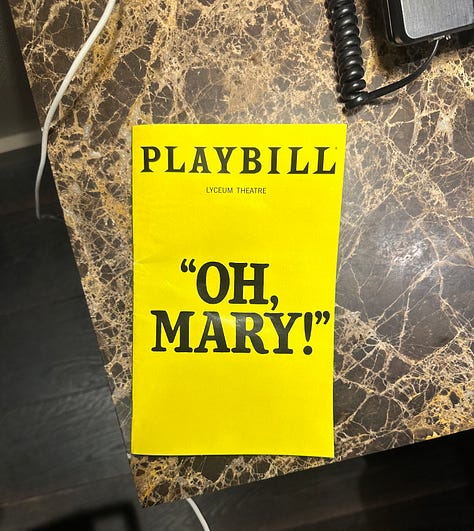

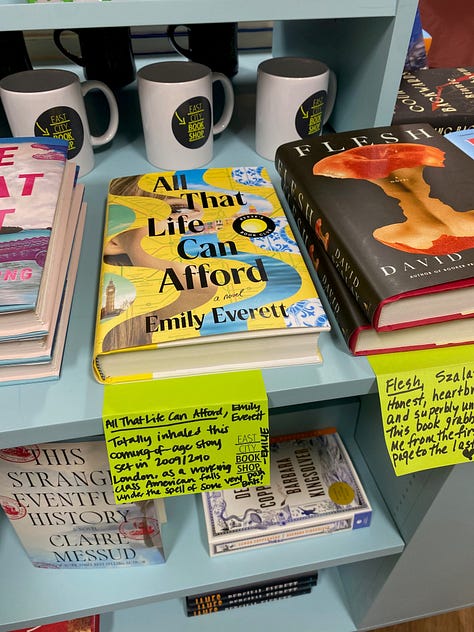
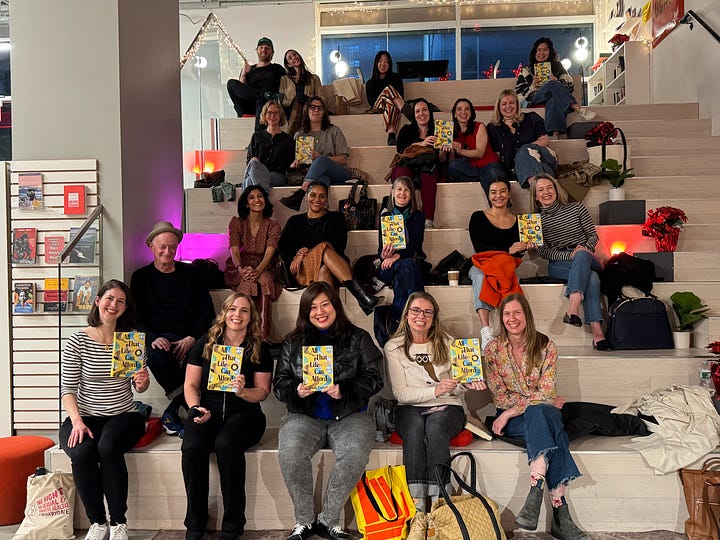
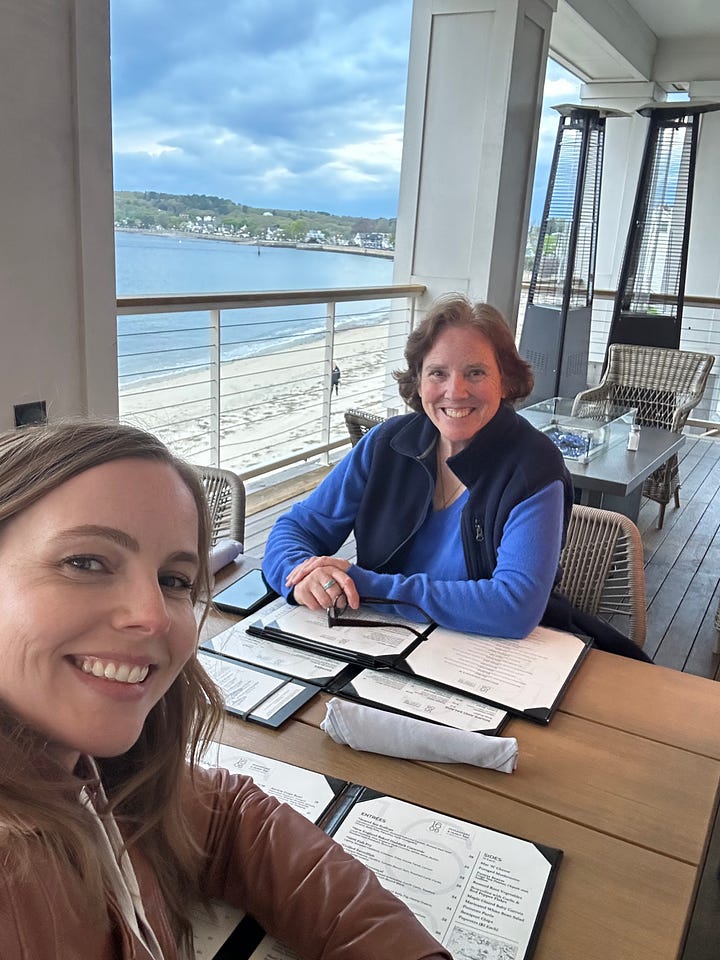
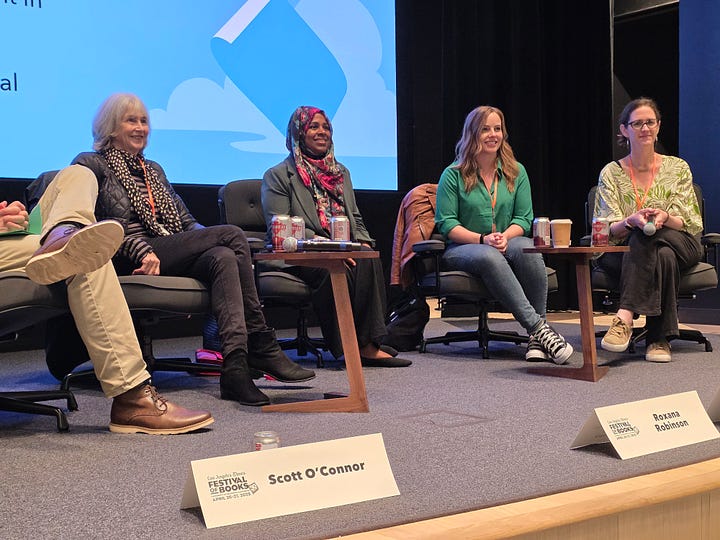
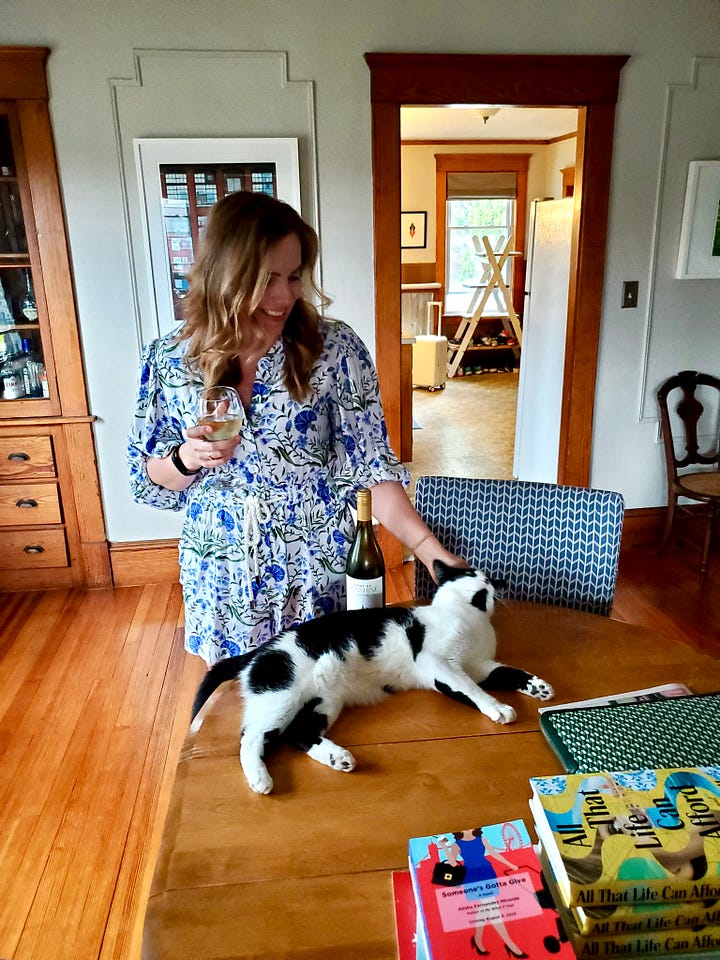
Good Week, Bad Week
I stole this from a podcast, sorry to that podcast.
Good week: On Thursday, at the last event of my book tour, I had to give a not-short speech about the book (instead of just being in conversation with someone) to a room of maybe fifty people. This would have crippled me with anxiety a few years ago, and at least made me physically shake back at the start of book tour, but I was cool as a cucumber somehow. That feels amazing.
Bad week: I got book-tour-plague sick between my NYC and LA events, and had to do a slew of important meetings with absolutely no voice. Made a lot of froggy first impressions.
At The Common:
Issue 29, The Common’s spring issue, came out this week! I’m biased, but it’s wonderful. Two fun excerpts from books coming out this summer (Mariah Rigg’s Extinction Capital of the World and Lucas Schaefer’s The Slip), beautiful photography and writing from Amman, Jordan, and much more.
Reading:
GOD I just finished Charlotte McConaghy’s Migrations and it was absolutely stunning, the book that you can’t stop thinking about once you’ve finished. It was so beautiful and lyrical and atmospheric, but also propulsive because of some ingenious plotting and the drip-drip-drip of mysterious backstory. Grateful to my friend Emma who recommended it!
Watching:
I’ve been watching The Studio and it is very good, but am I enjoying it? I don’t know. It is so cringey it’s almost hard to watch? I did just finish Four Seasons, the new Netflix series about marriage and middle-age with Tina Fey and Steve Carell, which I watched only because I’m obsessed with Colman Domingo. I thought it was smart and funny. I though Steve Carell’s teeth were too white to be believable. They looked like prop teeth. Why do celebrities get all new teeth every few years? Is that in the new SAG-AFTRA contract?
Listening:
Been revisiting my teenage obsession with Guster. 10/10, five stars, yes.
xEmily



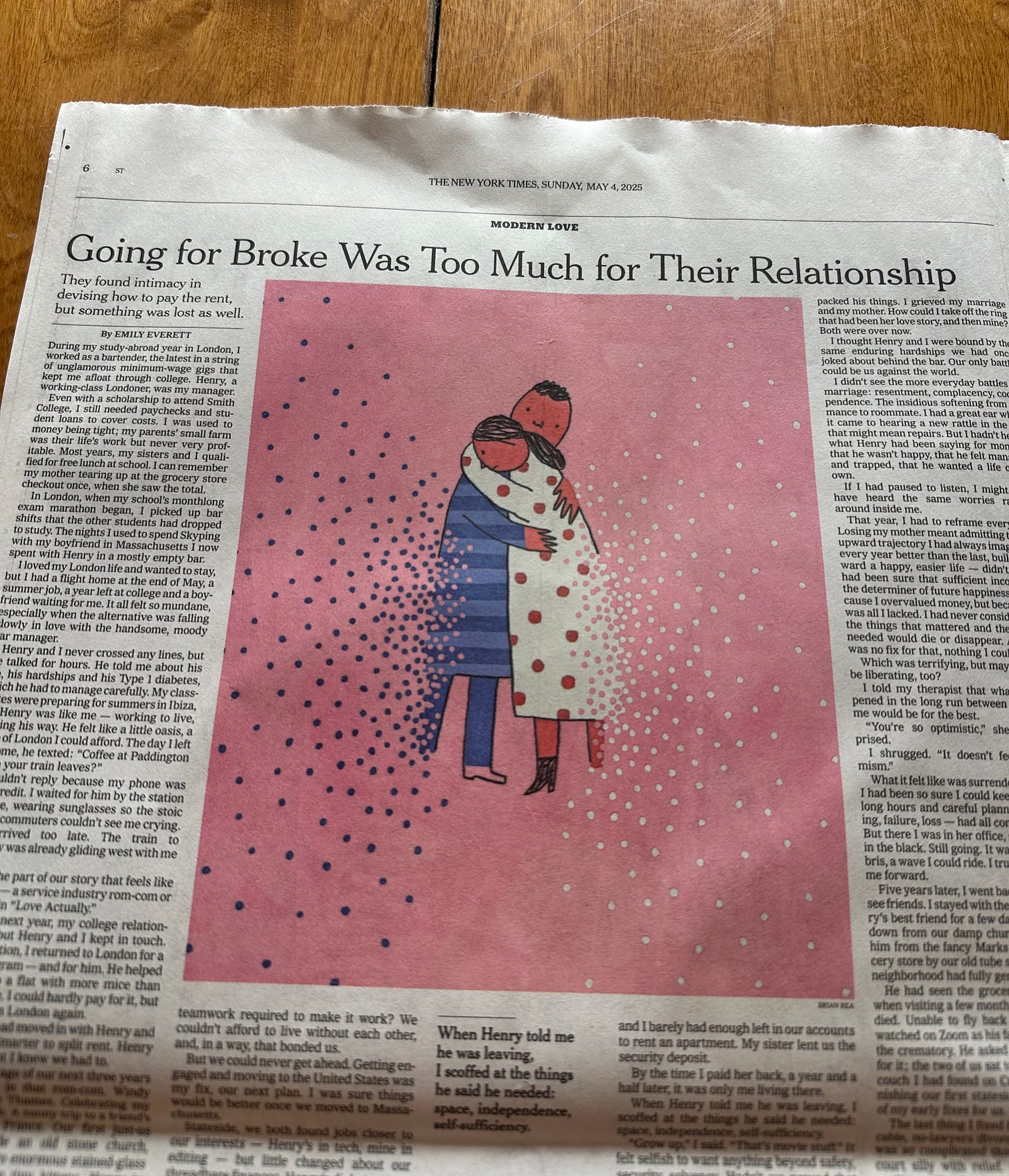
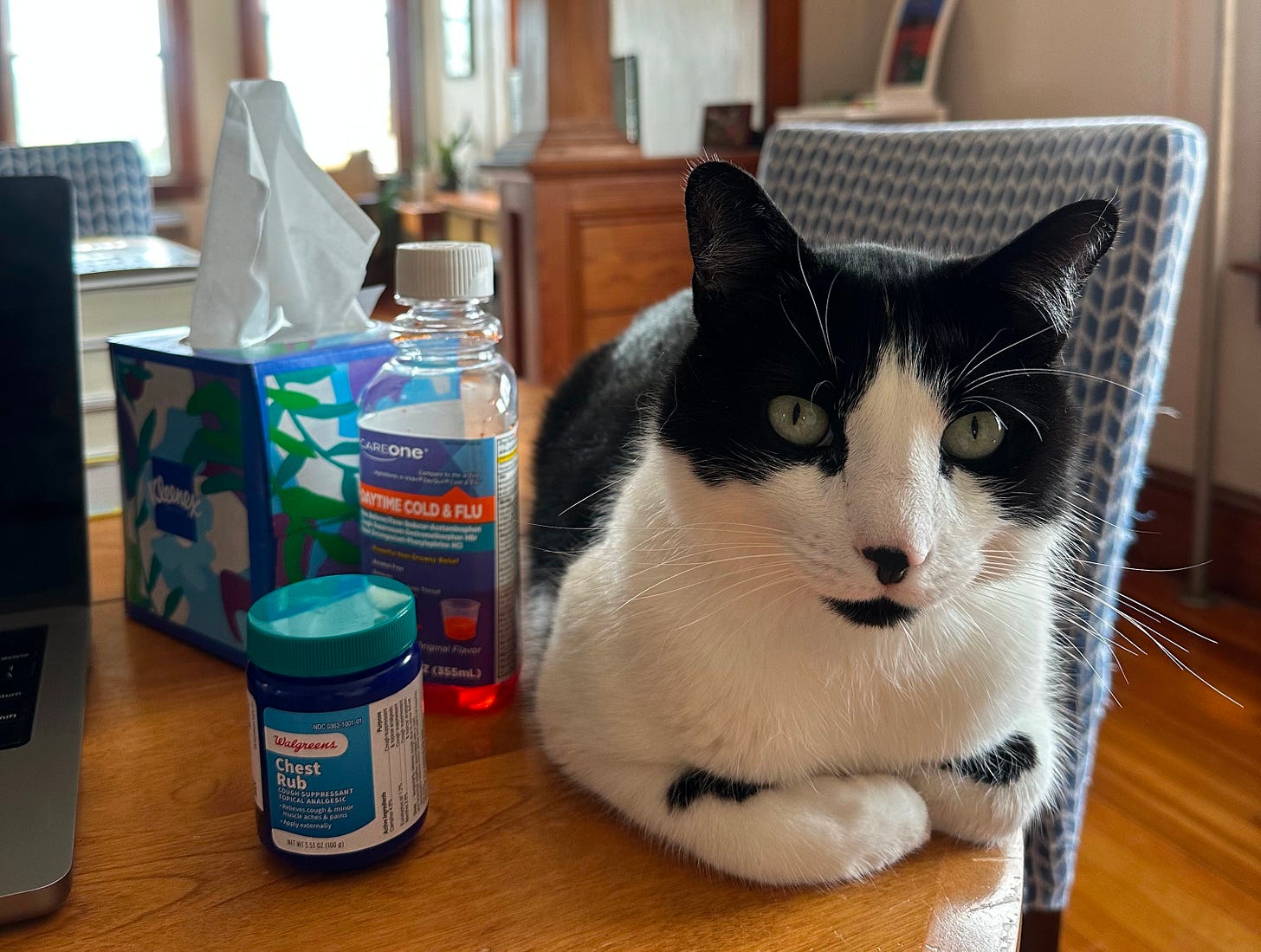
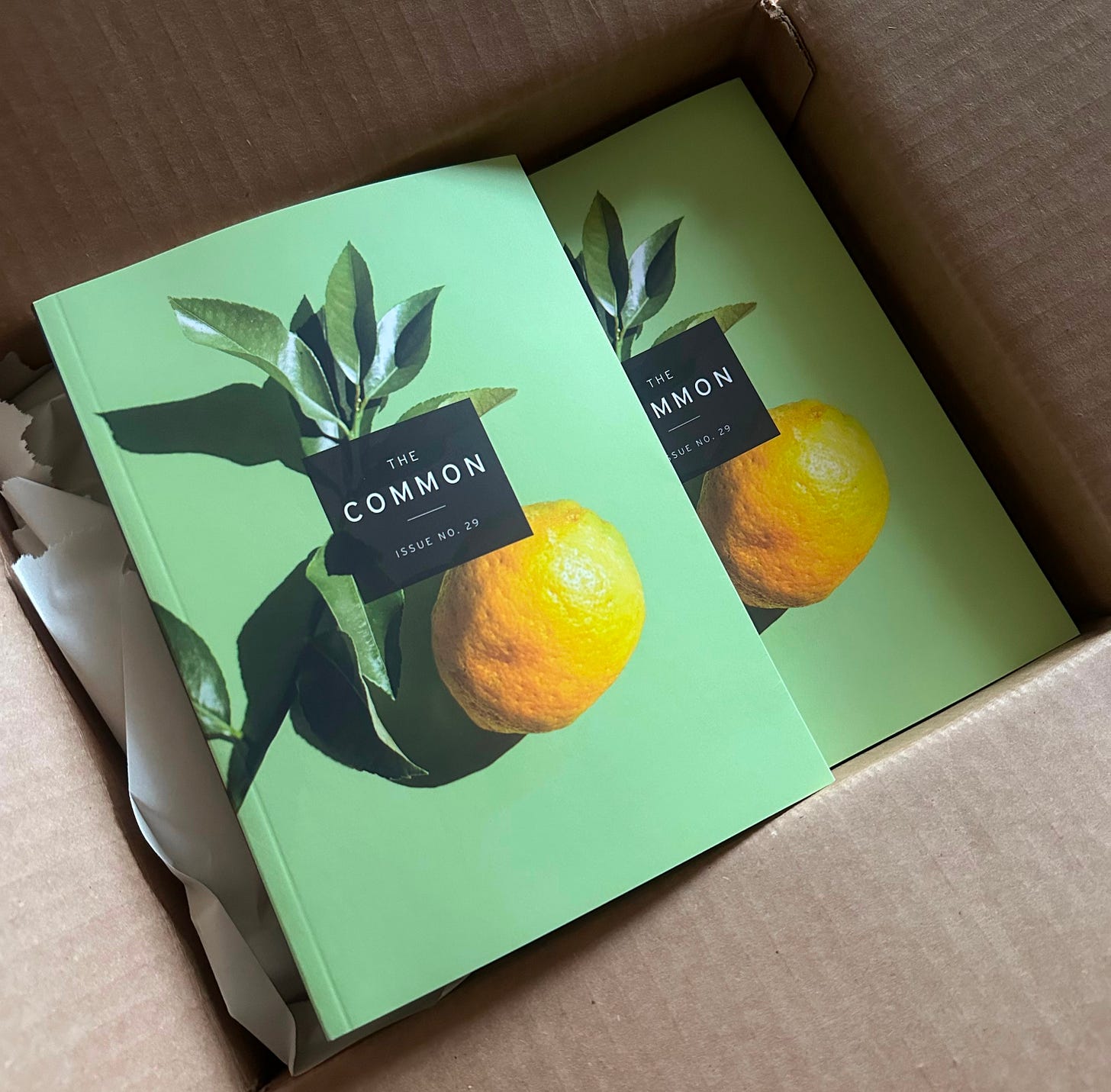
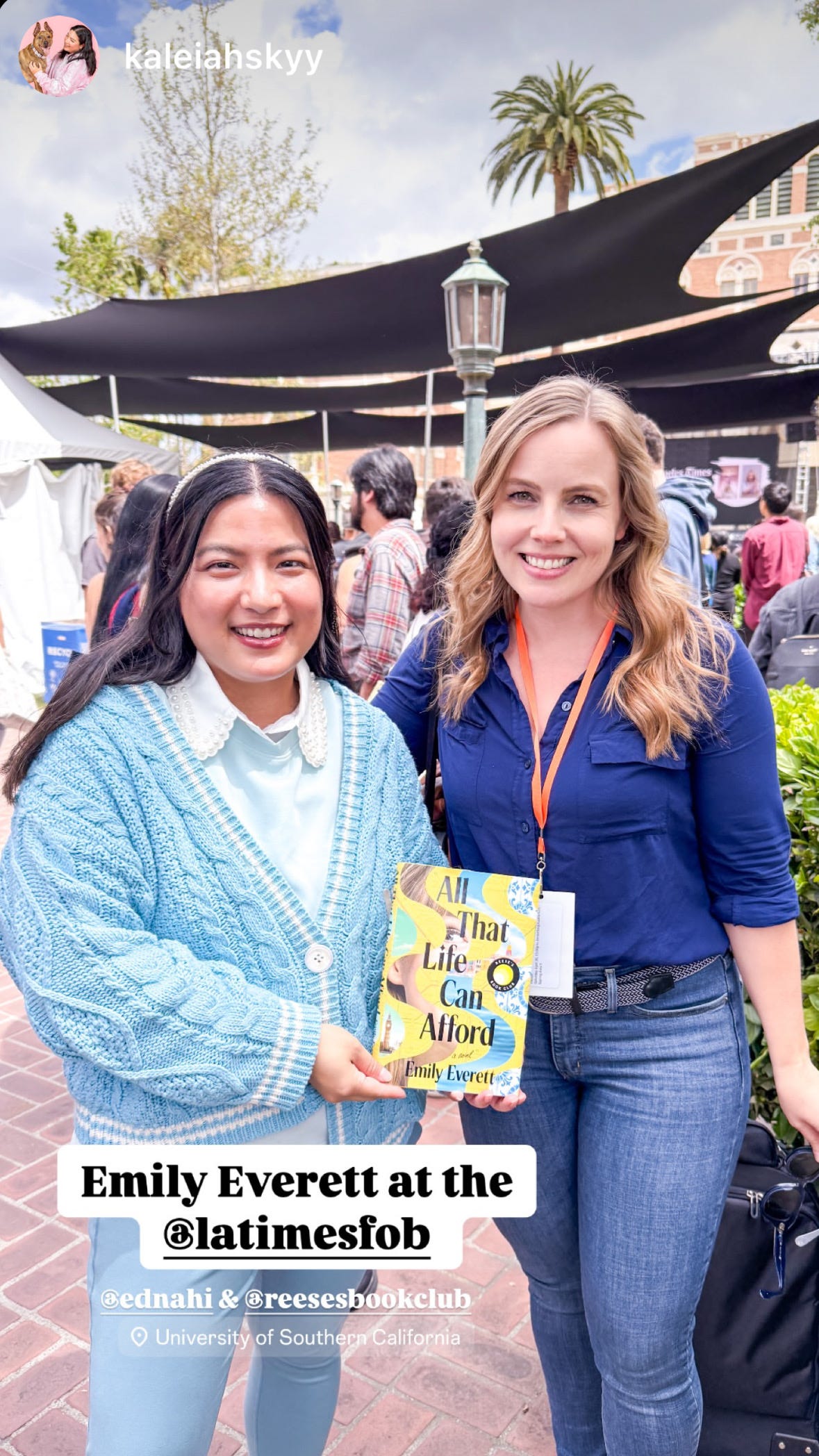
Emily, I’m relieved to read your post about mother-less children dealing with the Hallmark holiday frenzy. This week marked the 50th anniversary of my Mother’s passing. I waked her on Mother’s Day to up the stakes. Even though I am a mother myself, and grateful beyond measure, I still want to hide on the holiday. I feel your pain and anger, that’s a word I rarely use. But the ads and social media BS trigger a hot spot deep inside. I’m good at hiding it. But I feel safe telling you after reading your newsletter. 💗
Your reflections are so appreciated, Emily, esp your candor. The Modern Love piece is excellent. Congratulations on all the fun and very well-deserved good news, and thanks for letting us in on the parts that don't make for such a tidy story. ❤️